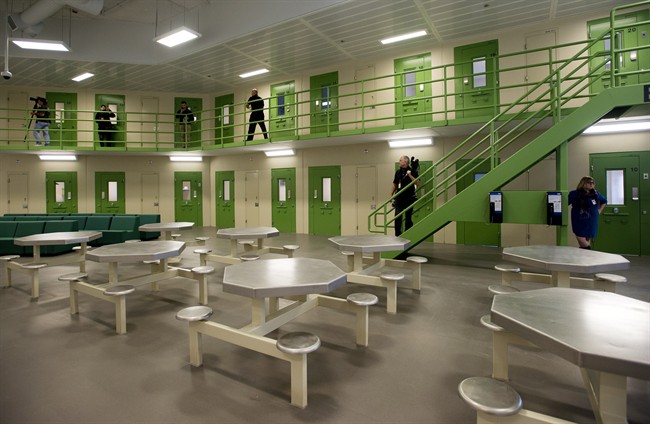TORONTO – Correctional managers in all of Ontario’s jails and detention centres were paid thousands of dollars in overtime gearing up for and winding down from a strike – even though it never happened.

In the event of a threatened strike by jail guards, the government said correctional managers and other managers from across the public service would run the jails.
But even before the workers were in a legal strike position at 12:01 a.m. Jan. 10, managers were supervising inmates – the work of correctional officers – which the government said was due to “staffing shortages.”
READ MORE: Ontario corrections staff avoid strike, reach tentative deal
The Ministry of Community Safety and Correctional Services has not disclosed how many managers were doing that work, or for how many days before the strike date.
“Leading up to the strike deadline, managers were deployed to institutions as they experienced varying degrees of disruption in their operations,” said Jonathan Rose, the director of communications for the minister.
“The arrival of managers at each institution varied depending on the circumstances but they were all less than a week.”
The ministry originally said managers “were required to provide supervision of inmates in several institutions” before the strike date due to staffing shortages. Rose later clarified that rather than several, it was actually all operational institutions.
- S&P/TSX composite closes up nearly 100 points, U.S. stock markets mixed
- Pedestrian in life-threatening condition after being hit by vehicle in Mississauga
- Judge at trial of man accused of killing cop was concerned over Crown changing theory
- Ontario transportation minister pitches 24-hour work to speed up Gardiner construction
READ MORE: Ontario starts training 144 new correctional officers for province’s jails
The government has not said how much it paid in overtime, except to say the correctional managers received 2.5 times their salary for hours worked beyond a normal work week, and managers with no experience working with inmates received double their salary for overtime.
And even though a deal was reached Jan. 9, averting a strike, managers spent 24 hours a day in several jails earning overtime in the days beyond that deadline.
“As part of the normalization of operations agreement, which was agreed to as part of the recent settlement, managers were required to continue supervising areas until searches of the institution could be completed by correctional officers,” said Lauren Callighen, a spokeswoman for minister Yasir Naqvi.
Searches had to be completed of areas that were controlled by the managers in order to look for contraband and weapons.
Trained jail guards abide by policy manuals “that make ‘War and Peace’ look like children’s books,” said Monte Vieselmeyer, the head of the corrections division of the Ontario Public Service Employees Union. But when managers step in, for example in a strike scenario, “they don’t run the units the same way we would,” he said.
The managers were supposed to leave when the sections they were controlling were cleared, but the union is suggesting that didn’t happen in at least one jail.
Denis Collin, the president of the OPSEU local at the Ottawa-Carleton Detention Centre, estimated there were 30 managers in his institution and “those numbers should have started falling”
faster than they did, he said. Managers were also still at the Central North Correctional Centre through last week, the government said.
Collin said he will be asking the ministry for an investigation of the return-to-work protocol, alleging there was “unjustified overtime.”
“(What) was upper management…still doing at our institution six days later? Camping out?” he said.
The union is also questioning the use of managers to address “staffing shortages” in the first place.
In the Ottawa jail, the guards stopped doing overtime days before the strike date, Collin said. That means the staffing situation there is so tenuous that when members are performing their scheduled work, the facility is deemed short-staffed, Collin said.
OPSEU says Ontario is short about 800 correctional officers, and the amount of new ones being hired just replaces those who leave.
“We’ve been short-staffed for the last five years,” Collin said. “Suddenly managers have to stay because we’re short-staffed?
It doesn’t hold any water because we’ve always been short-staffed.”
Premier Kathleen Wynne acknowledged the need for changes in corrections and said the government will continue to hire more staff.



Comments